Deanna Varagona - Interview
by John Clarkson
published: 13 / 1 / 2002
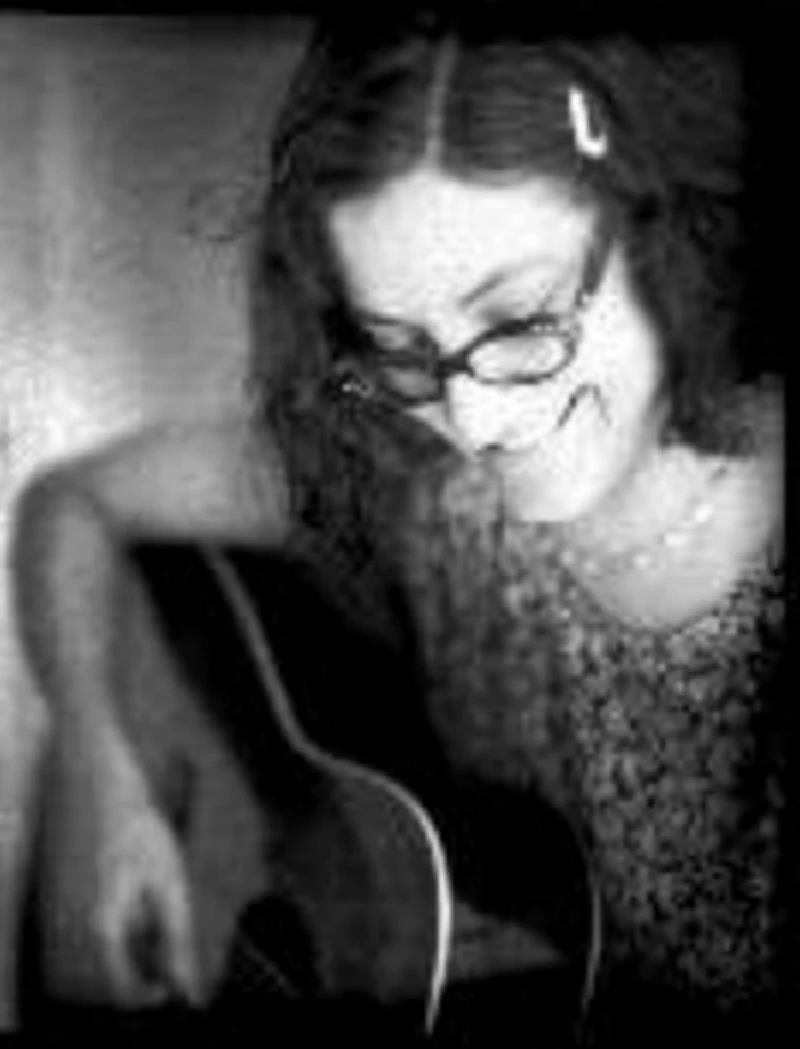
intro
Deanna Varagona is best known for being a member of the sprawling Nashville consortium, Lambchop. A multi instrumentalist and the only woman in the band, Varagona joined the group, shortly after its i
Deanna Varagona is best known for being a member of the sprawling Nashville consortium, Lambchop. A multi instrumentalist and the only woman in the band, Varagona joined the group, shortly after its inception in the early nineties, and has appeared on all six of the group's albums, 'I Hope You're Sitting Down' (1994) 'How I Quit Smoking' (1995), 'Hank' (1996), 'Thriller' (1997), 'What Every Man Spills' (1998) and last year's phenomenally successful 'Nixon'. While Varagona began by playing cello, banjo and alto sax in the group, she switched at the time of 'How I Quit Smoking' to playing baritone sax, and since recording "Nixon' has swopped again, this time to playing guitar. Varagona was born in the Appachalian mountains in Tennessee, and spent her formative years as a musician in both Athens in Georgia and Nashville, but moved to Chicago for work reasons in 1994. She regularly commutes the five hundred miles from Chicago to Nashville to attend Lambchop's rehearsals and recording sessions. As well as Lambchop, she has also appeared as a musical guest on recordings by Vic Chesnutt, Yo La Tengo, Neutral Milk Hotel, Ladybug Transistor, Neutral Milk Hotel, Chris Mills and M. Ward, and last year also put out her first solo album "Tangled Messages'. 'Tangled Messages', which has been released on the small Milwaukee label Star Star Stereo, fuses together elements of jazz and punk with a solid country blues sound, and recorded over three and a half years on an "ad hoc" basis as and when Varagona had the money to finance recording sessions, compiles together eight of her best songs. Varagona played her first solo tour of Britain and Europe in May and June, supporting the Willard Grant Conspiracy. With further solo dates being planned for Europe for later this year, Pennyblackmusic took the opportunity to catch up with her. In an exclusive interview, she talked to us about "Tangled Messages', its long recording period and Lambchop. PB : Why did you decide to call your solo album 'Tangled Messages' ? DV : It's a lyric from one of the songs, 'The Days Pass Anyway'. It comes near the last verse, but I came up with it for a title when people started asking me what the songs meant. The songs are my pictures, and thoughts and observances about life, but they can be usually taken in a variety of ways, and aren't particulary cut and dry. 'Tangled Messages', came out of that. Different people have different perceptions of what the songs mean as well, and those perceptions often change. Sometimes too a song will mean one thing to me, and sometimes it will mean something else. I think most things in life can be like that. PB : You've used a whole range of instruments on the album. You play both the acoustic guitar and the alto sax, but several more unusual instruments like the mandolin, the banjitar and the marimba as well. How many of these did you have to learn specifically to play for the record ? DV :Most of them I had had some experience with before. The only thing that was brand new was the banjitar. I had never played that instrument before. It is shaped more like a guitar, but it sounds like a banjo. I have played the banjo too as well though, and I, therefore, didn't find it too hard to play. The instrument that was most fresh to me was the marimba (Xylophone like instrument-Ed). I had borrowed one from a friend a few years earlier and had done some recording. He moved about five months before we did our last set of adding tracks, and he wanted me to buy it so he sold it to me really cheap. The mallets I had to buy for it were in fact more expensive than the marimba was. I had to teach myself a way around it again before I could do the two tracks that feature it.. Everything else I was somewhat familiar with anyway. I like to play as many different instruments as possible, so I try to learn new instruments whenever I can. PB : You have said in the past that you're fascinated by the way you "deal with instruments." Do you see 'Tangled Messages', therefore, as an experimental record ? DV : A lot of it is. Some of those songs were recorded four years ago, and the last 'Take My Shovel' was recorded around about February of last year. All the songs were recorded in snippets. Sometimes if I had some fresh new songs, and I was in a different locale, I would record them with friends who I thought would sound good on them . Some of the other songs though I recorded in my house and did the layering myself. They didn't really come from any one place. I chose the songs that went on the CD because I liked how they sounded together. They have a variety, but they also blend together I think. PB : One of the remarkable things about the CD is that, despite it being recorded over such a long period, it comes across as remarkably cohesive. The songs flow together really well. DV : Thank you very much. That was what I was hoping for. For a lot of it, I was trying to get things in a similar mood together. I experimented a lot with the order . My friend, Dave Pavkovic, who did the mastering also worked really hard to make the sound of the songs fit together well. It was recorded on several different types of media. One of the tracks was recorded just on a six track cassette recorder and others were recorded on quarterinch, eight track, and sixteen track. We worked hard with the technology to get the sound we did. PB : You've described 'Tangled Messages' as the equivalent of Pete Townshend's odds and sods 'Scoop'. What did you mean by that ? DV : I was a huge fan of the Who in my high school years. I still enjoy them but I lost all my records in a flood, so I can't really listen to them much these days. I recall, perhaps not all that accurately, reading about that album when it came out as being a set of home recordings and demos and things that he had done over the years. People had heard them and I guess had said to him "You know you should put this stuff out". I felt a little bit that way with these recordings because I have been encouraged especially by Kurt Wagner (Lambchop's songwriter and frontman-Ed) to capture the moments as they come. I have got into the habit of doing that. If I have some time, or if I know I have the opportunity, then I'll do some recording. I've never had someone saying "Here's the budget ! Here's some money ! Go into the studio and record an album". More of the time I'm thinking what I can and can not afford, perhaps a couple of reels of tape or maybe some studio time or to take some time off. Most of it was recorded at home, so when Star Star Stereo asked me to put something out, I started thinking "Let me see what I already have." I guess that's what makes it seem that way to me. PB : Did you record and write a lot of other songs during that period in which you were making what became 'Tangled Messages' that you have not released yet ? DV : Yes ! In fact one of my tasks for this summer is to weave through all of my recordings and to see what I want to keep and what I might want to use and perhaps get some final mixes on CD. I also want go through and retrack and finish some other things off. PB : It seems to be an album with a real punk heart. One of Robert Fisher's classic quotes, when defining his group,the Willard Grant Conspiracy, who you have recently toured with, was to describe them as "punks with acoustics". Would you define yourself, having just toured with them, in the same way ? DV : Yeah, you could say that. There's definitely that element. I have a real love for roots music ,and especially blues and country blues, but , as much as I love that stuff, and love to do it, it's not representative of where I come from. I totally came from the punk rock school of things and new wave especially. You don't want to make things too easy for yourself or too obvious. A little bit of work, and it's more valuable, but I think I definitely end up bringing part of punk rock, probably more often than not more to my detriment, to my songs. I guess you've got to be true to yourself. PB : When did you actually first begin to write songs ? Was it something that developed after you moved to Chicago, or was it an old, old habit ? DV : It's more of an old habit. When I was a kid,I would run around and sing things and make things up. And then I started writing a little when I got a little older. I got very much into poetry in my High School years and in my early twenties. When I left college, I had a little breakdown and I moved to Athens in Georgia to stay for a summer with my sister who was living there and I met Vic Chesnutt, John Seawright and a lot of the great poets who lived there. I don't exactly remember how it happened, as I had sung all my life, but always kind of aria, folky, light things, but around that time I discovered that I could also sing the blues and things that were richer in sound. It got me thinking that l maybe I could sing some of the poems I had written. I had never liked reciting poems. I had always felt really silly reciting them, and never comfortable doing so , so this way I could tell people my stories and images, without feeling that I was having to do that. That was back in the early eighties. PB : And it's grown since then ? DV : Yeah ! I've definitely become more prolific since I moved up to Chicago . At first it was because I was poor, and was sitting at home by myself (Laughs !) I thought "I'll entertain myself. I can't afford to go out." Chicago is also a very inspiring city to live in. People come from all over for its music. There's eighty things a night, and of those eighty things, there's usually ten things that I will know about or to be curious about. . It is all very inspiring . Even if it is a band that you really don't like, you think "Wow ! I've got to go home and work on my stuff" and if they're like great, you think "Oh my God ! I want to be that good" and again end up going home. There's so much variety here. PB : Do you see going to shows as an essential part of being a musician ? DV : I'm sure that it isn't for everybody, but I get a lot out of it. I've mainly self- taught myself my instruments, and if I go and see a new guitar player or a drummer or something, I quite often see something new. With the song 'Naked' on the album I had seen this jazz guitar/trumpet player play, and I had gone away thinking "Wow ! I really like it when he does that shape on his guitar" . I, therefore, tried to figure out what he had done and to take it home with me. I'm not quite sure that I was able to remember exactly what he had done, but thereby I was able to create something new.That was a good catalyst. Often you'll get new songs out of just out the simplest things. PB : Do you have a favourite track on the album ? DV : Boy ! It changes. 'Running So Long' has always been one of my favourite songs. I don't really know why,but maybe perhaps it because of the way the imagery is laid out on it. I do like that song a lot. PB : One of the most striking songs on the album is 'Take My Shovel'. There's a remarkable piece of incredible folk singing on that in which, when its main character find the body of his girlfriend who has just killed herself, rather than use words, you start crying out instead. It sums up the horror of the situation more than any words can. Was that the deliberate intention ? DV :Yes ! It's a very intense song, and I didn't pull it off quite as well as I wanted to, as I was sick that day. I wanted though to be able to express things that you can't express. Can you say how horrifying that situation would be ? Can you imagine ? It is bonechilling. As important as words are to me, I don't think you can capture emotion completely with words, and I definitely wanted to try to experiment with that. When I was writing the song, I was housesitting again in Athens for some friends that live in this house that I like to call 'The Cave'. It's got very low ceilings. It's basically all centre block walls, and it is an old garage that has been made into a cheap apartment. There is something about this place-it sounds silly-but it is very intense.The more time I spent there, the more intense things-my emotions and the things that I was writing-became. That song was written during that period. I was really upset about something, but I didn't want to talk about or to confess it to anybody, so I took that emotion with this story, trying to get out all the fear and anger I had, and also the helplessness I was feeling. It was going originally to be a yodel. I had experimented with this thing I called broken yodelling anyway, on another recording that I had done with some free jazz people and it just kind of took me to another level. It's a really, really important song to me. PB : There's a photo of you on the inner sleeve naked. Why did you decide to appear nude ? DV : First of all, it was supposed to be funny (Laughs). I have got that that punk rock attitude, but I am also really pretty conservative in a lot of ways. It wasn't, therefore, something that you would expect, so it was a little bit shocking and silly and ridiculous. It also seemed to fall into place. When I decided to call the album 'Tangled Messages,all these ideas suddenly hit me. It tied in as well with the song 'Naked', which had nothing to do with being me physically naked, but that kind of brought it in too. I liked the concept of the photo as well. We weren't able to recreate it very well, but it was inspired by a photo from a sixties pop easy listening record. There was this woman on it who was sexy and who looks nude, but the way the photo was taken you can't really see anything. You don't really know if she has got clothes on or not. She might well have a bikini on or something. You can't tell, and with my photo it is the same. I am also wearing shoes and I am wearing jewellery. Even if you are thinking, therefore, Well, what I see is a naked woman", you also have to think "Well actually she does have things on." PB : When you play with Lambchop, there's a lot of other musicians on stage with you. Do you find it easier or harder playing on stage by yourself ? DV : Oh, boy ! It's different. It's really lonely. Especially right after a Lambchop tour, it's really lonely to be on stage by yourself. I have been playing music now for a really long time. My family started me playing music when I was about three. Everyone plays in the family, and so it can, therefore, be scary for me to be on stage by myself, particulary if I know people in the audience. Sometimes it can be a lot more fun having other people there as well because you can play off them and they you. There's an incredible energy there. If we are playing my stuff, there's also the added thrill of getting to hear what other people do with my songs, and how they are going to make them different , and how they going to interpret these songs themselves. If I have written something, it is exciting to see it is realised, but at the same time though it is sometimes a lot easier to just go up there and do it yourself and not to worry maybe about other people learning the songs or remembering the chords. PB : Last two questions. You're based in Chicago for work reasons, but Lambchop come from Nashville. How do you manage to commute to attend rehearsals and recordings ? It must be a bit of a nightmare. DV : It is a bit of a nightmare. We don't, however, do much touring, so it's not like there's a show every week. We haven't played Nashville since Spring of last year I think. I also used to have a job as a saleswoman and they added Tennessee to my territory, so I had to go down there at least once a month to take care of my clients, and I was able to tie it in work with Lambchop then. It has been harder more recently as I have gone to trying to work less and to playing more shows. It doesn't pay nearly as well though, and it is now more expensive , and I also have to lose days off work to go down there. I have changed too from playing single note instruments to playing guitar with the band, and so that brings a whole new challenge as well . I had gotten a little bit lazy because I got so used to improvising with the sax, and before that the cello and a little bit of banjo that I would feel comfortable about coming for one rehearsal just before the tour. Now I need to do a little more work (Laughs !) I am trying, therefore, to go down at least once a month and get a rehearsal, so I am more prepared once the tours come around. PB : Finally what else can we expect from you next and in the future ? DV : Next is a bit of a conundrum. People can promise you the world in the music business, but you never know what is going to come through. Star Star Stereo aren't planning on releasing anything for a while. I'm not on a contract , so I have their blessing if someone else wants to put something out.I am working, therefore, on a soundtrack for a friend's film and I have this collaboration that I did with some noise jazz guys here in Chicago, and I would like to put that out on like a 10" EP. It's instrumental and more experimental . I have a more stripped down acoustic record that I would like to put out that I did with a trio that I played with for two years. It's much more straight up, like folk and country stuff,. I am hoping, therefore, to shop some of that stuff around. We'll see what happens. PB : Thank you
Picture Gallery:-
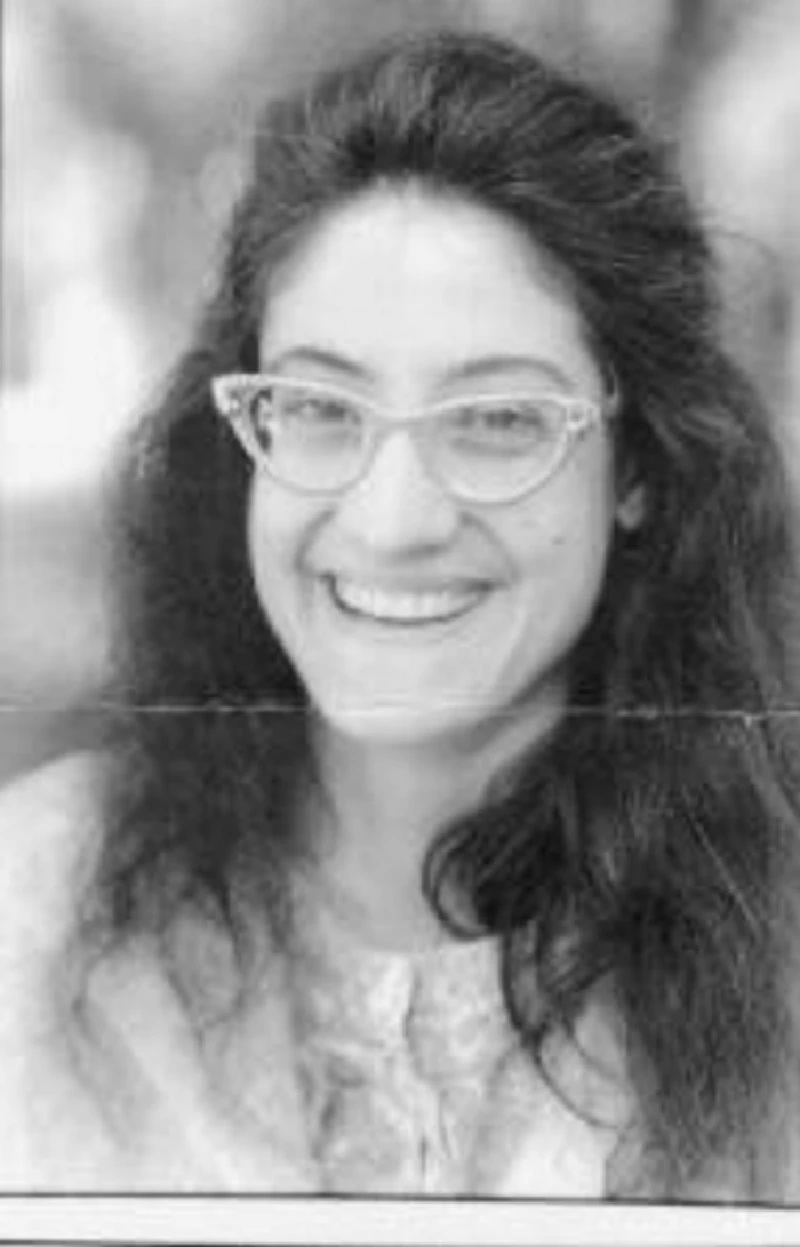
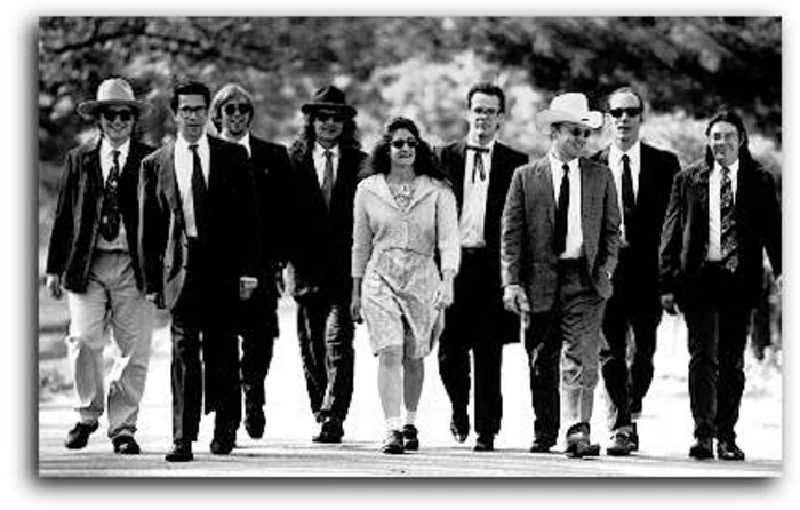
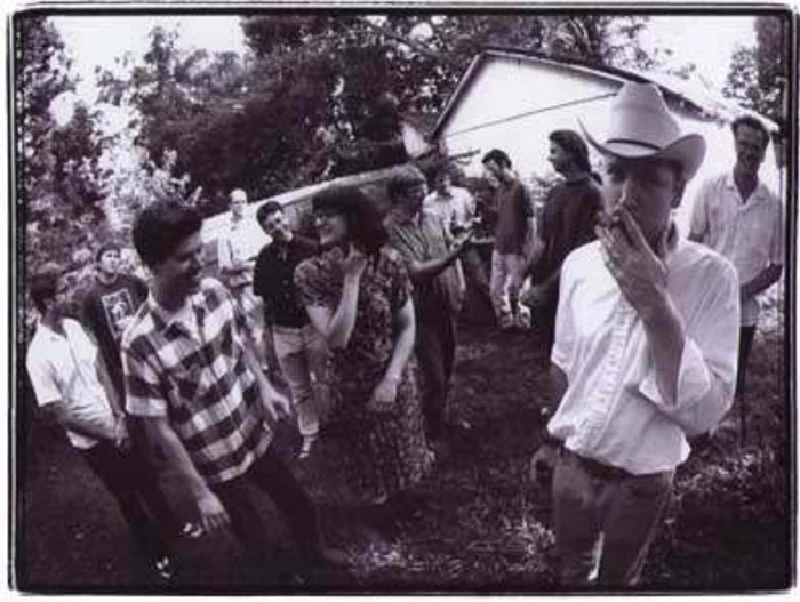
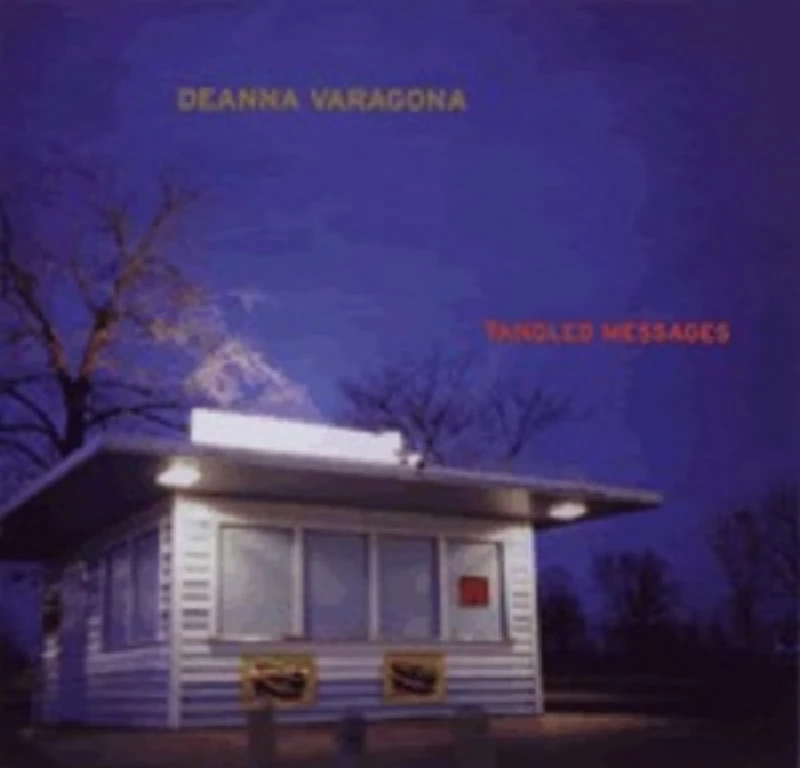
reviews |
|
Tangled Messages (2001) |
| As one of the founding members of the Nashville collective Lambchop, Deanna Varagona has consolidated a reputation over the last few years as a talented multi-instrumentalist. She featured on baritone |
most viewed articles
current edition
Peter Doherty - Blackheath Halls, Blackheath and Palace Halls, Watford, 18/3/2025 and 21/3/2025Armory Show - Interview with Richard Jobson
Liz Mitchell - Interview
Lauren Mayberry - Photoscapes
Deb Googe and Cara Tivey - Interview
Max Bianco and the BlueHearts - Troubadour, London, 29/3/2025
Maarten Schiethart - Vinyl Stories
Sukie Smith - Interview
Clive Langer - Interview
Kim Wilde - Photoscapes
previous editions
Heavenly - P.U.N.K. Girl EPBoomtown Rats - Ten Songs That Made Me Love....
Trudie Myerscough-Harris - Interview
Doris Brendel - Interview
Beautiful South - Ten Songs That Made Me Love...
Kay Russell - Interview with Kay Russell
Dwina Gibb - Interview
Pulp - Ten Songs That Made Me Love...
Sound - Interview with Bi Marshall Part 1
Jay Reatard - Interview
most viewed reviews
current edition
Davey Woodward - Mumbo in the JumboNigel Stonier - Wolf Notes
Wings - Venus and Mars
Only Child - Holy Ghosts
Kate Daisy Grant and Nick Pynn - Songs For The Trees
Neil Campbell - The Turnaround
Philip Jeays - Victoria
Darkness - Dreams On Toast
Suzanne Vega - Flying With Angels
Charles Ellsworth - Cosmic Cannon Fodder
Pennyblackmusic Regular Contributors
Adrian Janes
Amanda J. Window
Andrew Twambley
Anthony Dhanendran
Benjamin Howarth
Cila Warncke
Daniel Cressey
Darren Aston
Dastardly
Dave Goodwin
Denzil Watson
Dominic B. Simpson
Eoghan Lyng
Fiona Hutchings
Harry Sherriff
Helen Tipping
Jamie Rowland
John Clarkson
Julie Cruickshank
Kimberly Bright
Lisa Torem
Maarten Schiethart